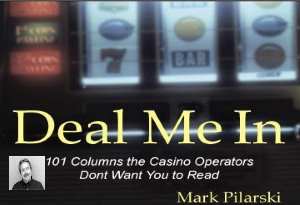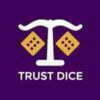I know you don’t believe in the doubling up theory after a loss in blackjack, but after I have seven or eight losses in a row, wouldn’t betting more be warranted, if not just for the due factor? Jim K.
Your compass is off, Jim, if it reliably shows your viewpoint regarding sequences in gambling. You believe that after so many losses, a win is more likely to occur to self-correct a losing streak. From your point of view, your statistical justification of seven or eight losses leads you to the faulty conclusion that, based on the past evidence of so many losses, a win is way overdue, and hence to the casino’s favorite hunch: so why not bet more.
What you’re describing, Jim, is called Gambler’s Fallacy, and you, and far too many of your brother and sister players for that matter, erroneously believe that a sequence of events in a random process—separate hands of blackjack—will display the essential characteristics of long-term play even when the sequence is short.
As your query ponders, if you lost seven times in a row, should you wager heavily on the next hand because it’s way overdue? But just because you have a deviation in one direction (Loss, L, L, L, L, L, L), that doesn’t mean an aberration in the opposite direction will occur over the short run to restore balance. Deviations are not ‘corrected’ as time goes on, just diluted. The same holds true with consecutive wins, that streaks may well continue after a series of winning hands. Yes, Jim, the deck might be ‘hot’ while your hind end is sitting there, but the probability of subsequent wins doesn’t necessarily increase the likelihood of a win.
The solution to Gambler’s Fallacy is to treat each hand as an independent event. Cards, Jim, have no memory of any past actions.
Oh, and Jim, that logic of betting more after a loss is called the Martingale System, an historic name for doubling up after every loss. In essence, you the gambler double your previous bet (after a loss) to recoup that loss and also win back your initial wager. Above I discussed why this form of betting isn’t foolproof, because you don’t necessarily win even after an extended losing streak. But also, you don’t have an inexhaustible bankroll, and the casino limits the maximum size of your wager. Let’s say your initial bet is $10 and you lose, followed by $20 to recoup your losses. Then $40, $80, $160, $320, $640. You invested $1,240 just to get your measly 10 bucks back.
Then there is the possibility that you were playing on a table with limits of $10-$1,000. A string of seven defeats and the casino automatically protects itself by its table limit of $1,000, and you, Jim, in all probability, are wiped out by then, all in less than three minutes.
Great column last week on multi-line/multi-coin video slots machines. So if I am to get you right, you are just recommending one coin per line, correct? Mary S.
That’s right, Mary. On multi-line/multi-coin slots, I by and large recommend playing one coin per line, because more than likely, you are playing on a Straight Multiplier or “equal distribution” machine. The payouts on additional coins per line are just straight multiples of the one-coin payout on most of these machines, so there’s no advantage to playing more than one coin per line.
Gambling Wisdom of the Week: “A belief which leaves no place for doubt is not a belief; it is a superstition.” -Jose Bergamin, author




















